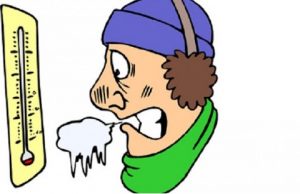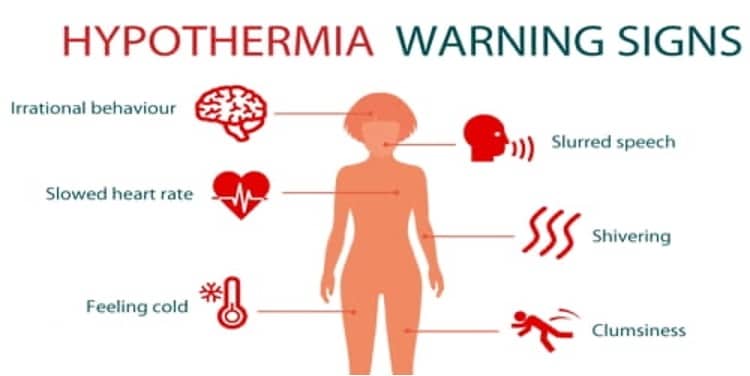As previously stated in our “Frostbite: Winter Safety Series (Part 1)” blog, Alberta is no stranger to harsh winters and freezing temperatures. There are many people who brave these extreme weather conditions every day, and it is important to know how to properly protect yourself.
Hypothermia poses a threat during severe cold weather conditions. In Canada alone there is a staggering 8,000 deaths a year in relation to hypothermia. Therefore, you see how it can be lifesaving to be able to identify the early signs of hypothermia.
What is Hypothermia?

What makes hypothermia so dangerous?
A measly two-degree internal body temperature change doesn’t seem like a lot, right? However, with a drop from 37°C to 35°C the initial effects of hypothermia will start to set in. Your body will begin to shut down as your temperature continues to decrease. Your heart, nervous system and other organs won’t be able to function properly and that will ultimately result in a medical emergency.
Hypothermia progresses in the following three stages:
Stage 1: Shivering will begin, and circulation will reduce.
Stage 2: The affected person will have slower movements, slowed or shallow breathing, clumsiness, irritability, confusion, and tiredness.
Stage 3 – Advanced: The affected person will have extremely slow movements if any, weak or absent breathing and pulse. The person may lose consciousness.

What to do if you or someone else has hypothermia?
First things first, we want to move the affected person into a warm place as soon as possible. Remove wet clothes and replace with dry ones. Apply heat to the neck, armpits, groin, and ankles and wrap the individual in a blanket to gradually warm them back up. Ensure they stay hydrated and drink lots of warm fluids such as water, tea, or coffee; this will help to warm the body from the inside. Do not drink alcohol! Contrary to popular belief alcohol does not warm the body, it actually has the opposite effect.
Hypothermia is considered a medical emergency and can result in death. If you or suspect someone else of having hypothermia, call 911 for medical help immediately.
Questions? Contact Our Team
Leave us a Comment
How Can We Help You?
Contact us at JADA Solutions (HSE) Inc. to speak with one of our professionals!
Newsletter
📹 Watch our latest Safety Toolbox Talk: Mould and Fungi 101: Viable vs. Non-Viable Mould Testing
💡Are all moulds considered fungi? And why should we care? This leads us to explaining the two different types of testing for mould exposure: viable vs non-viable.
🔍 Lead and Heavy Metal Exposure: Are You Protecting Your Workers?
Lead and other heavy metals can quietly put your team at serious risk - especially during construction, demolition, or manufacturing projects.
Our last Asbestos Worker in Alberta 2-Day Training Course before the Summer season happens at the end of this month!
🗓️ June 24th - 25th
⏰ 8AM - 5PM
💵 $525
📍 Sherwood Park, AB
Claim your spot now! 👉


